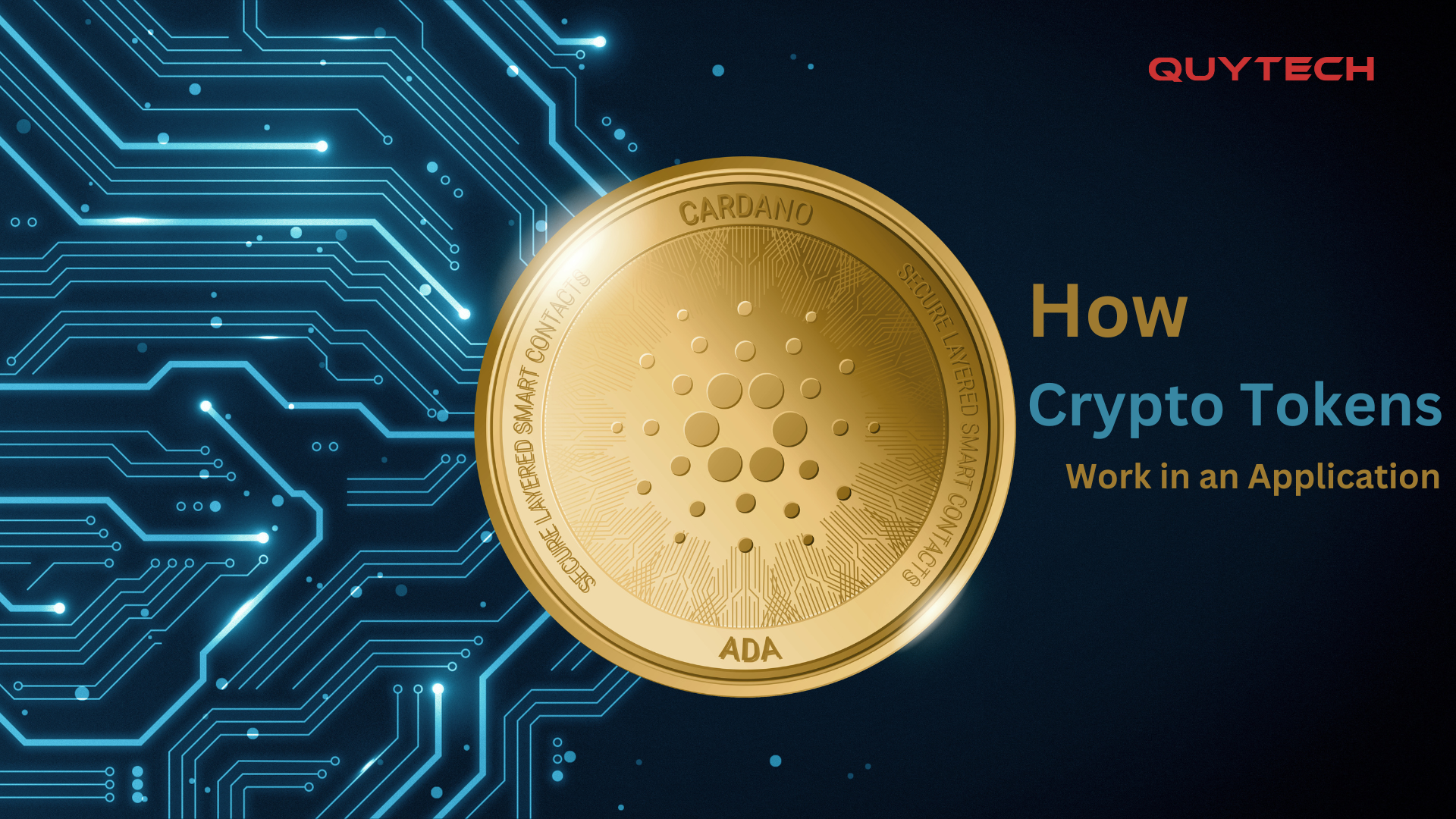How Crypto Tokens Work in an Application: A Comprehensive Guide for Beginners
 Ewenjlin Smith
Ewenjlin Smith
Cryptocurrency tokens are digital assets that facilitate transactions and interactions within blockchain-based applications. They have revolutionized applications' functions by introducing decentralized ownership, enhanced security, and novel economic models.
This guide provides a deep dive into the intricacies of crypto tokens, their role in applications, and the underlying mechanisms that make them indispensable components of the blockchain ecosystem.
Understanding Crypto Tokens
Crypto tokens are digital representations of value stored on a blockchain network.
Unlike cryptocurrencies like Bitcoin, which primarily serve as a medium of exchange, tokens have a broader range of functions.
They can represent various assets, including digital or physical goods, services, voting rights, or access to specific features within an application.
Tokens are created and managed through smart contract platforms like Ethereum, which provide developers with the tools to define and customize their token's characteristics.
Types of Crypto Tokens
Crypto tokens are classified into various types based on their functionality and purpose:
Utility Tokens: Utility tokens grant holders access to a specific service or product within an application. They facilitate interactions, incentivize usage, and enable users to participate in the application's ecosystem.
Security Tokens: Security tokens represent ownership in an underlying asset, such as a company or a real estate property. They confer traditional investment rights, including dividends or voting power.
Governance Tokens: Governance tokens allow holders to participate in the decision-making processes of a decentralized application. They represent voting rights and enable users to shape the direction and development of the application.
Stablecoins: Stablecoins are tokens designed to maintain a stable value against a fiat currency or a basket of assets. They provide stability and minimize volatility, making them suitable for everyday transactions.
Tokenization in Applications
Tokenization is the process of breaking down a text or data into smaller units called tokens.
This process is essential for many applications in natural language processing, including search engines, machine translation, and text classification.
There are many different ways to tokenize text, but the most common approach is to use a regular expression to identify word boundaries.
Once the text has been tokenized, the tokens can be used to create a variety of features, such as word counts, term frequencies, and document vectors.
These features can then be used to train machine learning models for natural language processing tasks.
Tokenization is a fundamental step in many natural language processing applications. By breaking down text into smaller units, tokenization makes it possible to analyze and process text more efficiently.
This process enables a wide range of applications, from search engines to machine translation.
Crypto tokens play a pivotal role in applications by enabling:
Decentralization: Tokens distribute ownership and decision-making power among users, reducing reliance on centralized entities and promoting transparency.
Enhanced Security: The immutability and security of blockchain technology ensure that tokens are tamper-proof and protected from fraud or theft.
Economic Incentives: Tokens incentivize users to engage with the application, participate in its development, and contribute to its ecosystem.
Access Control: Tokens can be used to restrict access to certain features or content within an application, ensuring exclusivity and tiered membership models.
Data Management: Tokens can represent digital identity, ownership of assets, or other valuable data, providing a secure and verifiable way to manage information.
How Tokens Function in Applications
Tokens operate on blockchain networks, which provide security, transparency, and immutability. Their functionality is defined by smart contracts, which automate the execution of rules and conditions. By leveraging tokens, applications can create frictionless, secure, and efficient ecosystems that empower users and foster growth.
The integration of crypto tokens into applications involves several key mechanisms:
Token Generation: Developers create tokens by deploying smart contracts on the blockchain. These contracts define the token's properties, including its supply, distribution, and rules for transfer.
Token Distribution: Tokens can be distributed to users through various methods, such as token sales, airdrops, or as rewards for specific actions within the application.
Wallet Management: Users store their tokens in digital wallets, which provide secure access and management capabilities.
Token Transactions: Transfers of tokens between users are processed through the blockchain network, ensuring transparency and immutability.
Token Use Cases: Applications may define specific use cases for tokens, such as purchasing goods or services, staking for rewards, or participating in governance decisions.
Examples of Token Use in Applications
Numerous applications incorporate crypto tokens to enhance functionality and user experience:
Decentralized Finance (DeFi): DeFi applications use tokens to enable lending and borrowing, stablecoin transactions, and other financial services without intermediaries.
Gaming: Game tokens represent in-game assets, collectibles, or rewards, fostering player ownership and engagement.
Supply Chain Management: Tokens can track the movement of goods through supply chains, providing transparency and provenance.
Social Media: Social media platforms use tokens to incentivize content creation, reward user engagement, and create decentralized governance models.
Real Estate: Real estate tokens represent fractional ownership in properties, enabling fractional investing and liquidity in the real estate market.
Conclusion
Crypto tokens have emerged as indispensable components of blockchain-based applications, offering a wide range of benefits and enabling novel use cases.
By understanding the types of tokens, their functions, and the mechanisms that drive their operation, an AI token development company, and users can leverage the potential of tokens to create innovative and decentralized applications that transform industries and empower users.
As the blockchain ecosystem continues to evolve, the role of crypto tokens will undoubtedly grow, further shaping the future of digital interactions
Contact US
Phone:+91-704 229 5974
Email: info@quytech.com
Subscribe to my newsletter
Read articles from Ewenjlin Smith directly inside your inbox. Subscribe to the newsletter, and don't miss out.
Written by

Ewenjlin Smith
Ewenjlin Smith
Hi, I'm Ewenjlin Smith, a Business Analyst at Quytech. My expertise lies in utilizing data-driven insights and strategic planning to enhance business operations. With a proven history of optimizing processes, I am committed to fostering sustainable growth and boosting profitability through analytical proficiency.